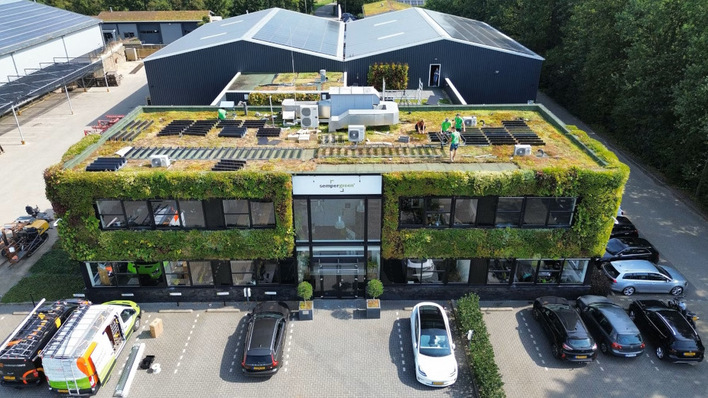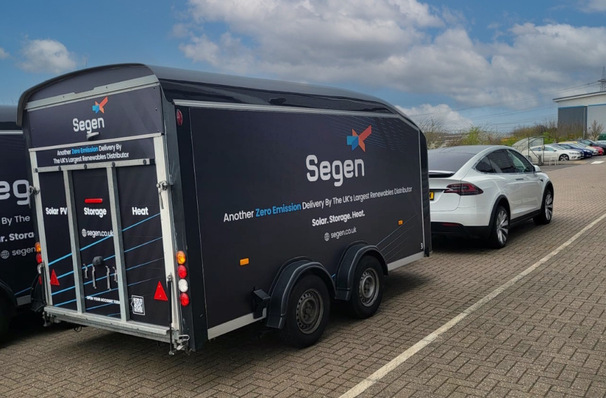Among the top 5 countries, the Netherlands leads the way with more than 66,600 public charging points. France overtakes Germany with more than 46,000 charging points installed (2020: around 44,700), followed by the UK. This is according to data from the European Alternative Fuels Observatory (EAFO). Private wallboxes are also more in demand than ever, so that funding in Germany has been increased for the second time in a very short period. The leading charging infrastructure companies will present themselves at Power2Drive Europe taking place from July 21 to 23, 2021 at Messe München as part of The smarter E Europe.
Reliable charging infrastructure crucial
For widespread acceptance of e-mobility, users need not only a wide range of affordable electric vehicles, but also a reliable charging infrastructure that covers the entire country. This is essential for the purchase decision and thus for the ramp-up of electromobility. Public subsidies and a smart tax policy are driving electromobility and the expansion of the charging infrastructure in Europe. In the Netherlands, for example, not only are sales of e-cars booming - more than 66,600 public charging stations have already been installed, that is more than anywhere else in Europe. Three battery electric vehicles (BEVs) share one charging point here, according to EAFO statistics.
Did you miss that? Europe leading in electric vehicles
France saw particularly rapid growth in 2020: with the strongest year-on-year growth in Europe at 55 percent, France now has just over 46,000 public charging points, according to EAFO data - around 2,500 more than Germany. Growth is going to continue, with electric mobility set to receive a strong boost as part of the Corona economic stimulus package "France Relance." The French government is making two billion euros available by the end of 2022 for purchase and scrapping premiums and for the expansion of the charging infrastructure.
Public fast charging stations: Germany in first place
Germany is number one in Europe when it comes to public fast-charging stations: 7,456 are already in place. In total, there were around 44,700 public charging stations in the country at the end of 2020. In terms of the number of BEVs, this means that seven e-cars share one charging point in Germany. If plug-in hybrid electric vehicles (PHEVs) are included the number is as high as 13 vehicles. There is a need for action.
At least ten times as many charging points as today - between 440,000 and 843,000 - would have to be installed in Germany in 2030. This is the conclusion of the study "Charging infrastructure after 2025/2030 - Scenarios for market ramp-up" by the National Centre for Charging Infrastructure (commissioned by the German Federal Ministry of Transport and Digital Infrastructure, BMVI). It states the number depends both on how many private charging points are available and how busy the public infrastructure is, as well as on the behavior of drivers and the use of charging hubs with fast charging points.
80% of charging will take at home or at work
"It is estimated that over 80% of charging will take place at home and at the workplace. Ideally, the user can even combine charging with a purchase for daily needs. Retailers have recognized this attractive opportunity for customer loyalty and are already investing there," says Markus Emmert, board member of the German Federal Association for eMobility, in Power2Drive Europe's expert interview "The Right to Charging Infrastructure."
In addition to the expansion of the public charging infrastructure, the German federal government - and beyond that individual states and municipalities - promotes the installation of private charging points, but ties this to forward-looking conditions such as the controllability of the charging solutions and the use of electricity from renewable energies.
300,000 applications for private wallboxes in Germany
And demand is enormous: in just three months, there have already been 300,000 applications for private wallboxes. The Federal Ministry of Transport has now followed suit and will fund a total of 444,444 charging points.
Did you miss that? EVBox Group Introduces Business Portal for Real-time Insights
Since the end of 2020, the German government has also been simplifying the installation of a charging option for electric vehicles for apartment owners and tenants by implementing the EU Building Energy Efficiency Directive and the Act on the Ownership of Apartments and the Permanent Residential Right (WEG).
„Charging the future of mobility“
Stakeholders in the energy and mobility transition exchange ideas and experiences
Smart charging solutions for private and public areas, electric vehicles and solutions for e-fleets will be presented by the international exhibition Power2Drive Europe under the motto "Charging the future of mobility" from July 21 to 23, 2021 at Messe München, Germany.
Both the German Federal Association for eMobility (BEM) and AVERE, the European Association for Electromobility, are supporters of Power2Drive Europe. It reflects the interaction between electric vehicles and a sustainable and environmentally friendly energy supply. Interest is high, with leading manufacturers such as EVBox, Keba, The Mobility House, Webasto, Schneider Electric, Alfen, Mahle and ChargeHere already represented.
The smarter E Europe as platform
Within the innovation platform The smarter E Europe, where Power2Drive Europe takes place, the players of the energy and mobility transition come into contact, present innovative concepts and show the increasingly strong interlinking of the sectors electricity, heat and transport. (hcn)







